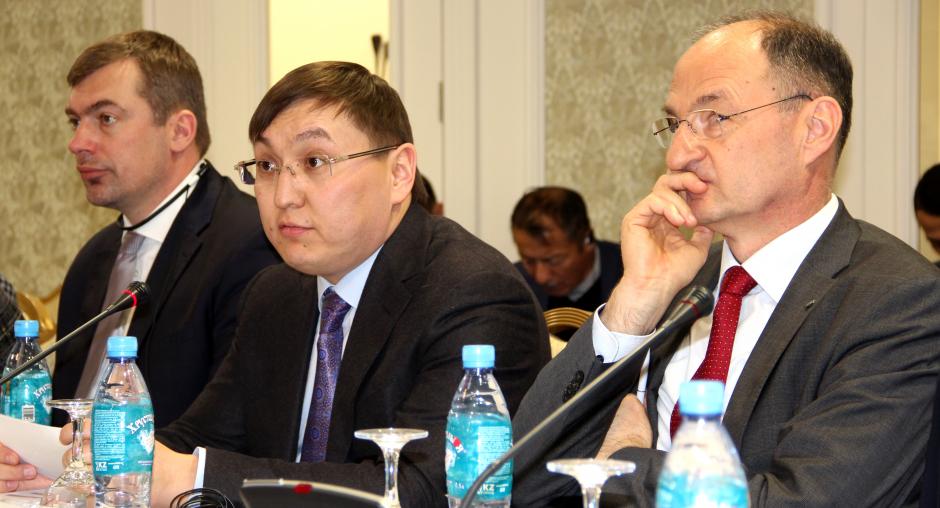OSCE supports public consultation meeting on implementing Strategic Environmental Assessment pilot project

An OSCE-supported public consultation meeting on the application of Strategic Environmental Assessment (SEA) under the Espoo Convention Protocol in Kazakhstan concluded on 6 March, 2018 in Astana.
The two-day event was organized by the OSCE Programme Office in Astana in partnership with Kazakhstan’s Energy Ministry, the United Nation’s Economic Commission for Europe, the United Nations Development Programme, the European Union Delegation to Kazakhstan and the Human Health Institute, a local NGO. Some 50 participants from the parliament as well as the Energy, Health, Agriculture, and National Economy Ministries joined environmental organizations in reviewing the pilot SEA scoping document for the Concept Paper on Developing Fuel and Energy Complex until 2030.
International and national experts involved in the pilot project briefed authorities and civil society leaders on possible environmental and health implications from implementing the proposed Concept Paper and proposed mitigation alternatives.
Ambassador György Szabó, Head of the OSCE Programme Office in Astana said in his opening speech: “Good governance that includes effective strategic environmental planning is among the top priorities of the OSCE in its comprehensive approach to security and co-operation. The OSCE will further support Kazakhstan in enhancing its legislation to meet the SEA criteria as an integral part of the good governance process.”
Akhmetzhan Primkulov, Chair of the Committee of Ecological Regulations and Control of the Energy Ministry said: “The Ministry of Energy considers the Strategic Environmental Assessment to be effective tool for determining cost-effective alternative strategic development options for green economic growth, providing new opportunities for foreign investment while protecting the environment and public health.”
The SEA, adopted in 2003 in Kyiv, is a protocol to the UNECE 1991 Convention on Environmental Impact Assessment ratified by Kazakhstan in 2001. The document provides a model for evaluating the environmental and health consequences of a government’s draft plans, strategies and programmes by ensuring active public participation in the decision-making process.
The event was part of the OSCE Programme Office’s multi-year efforts to promote sustainable development and good governance in the host country.
